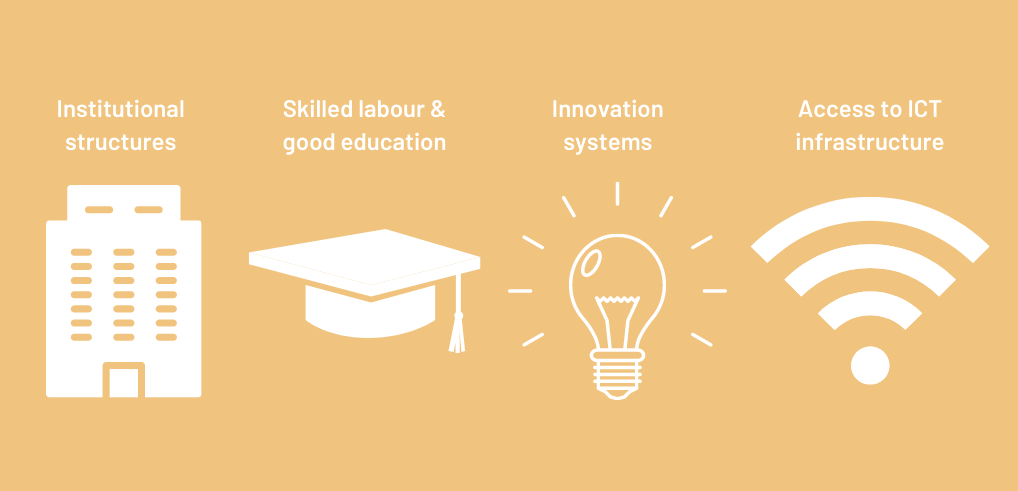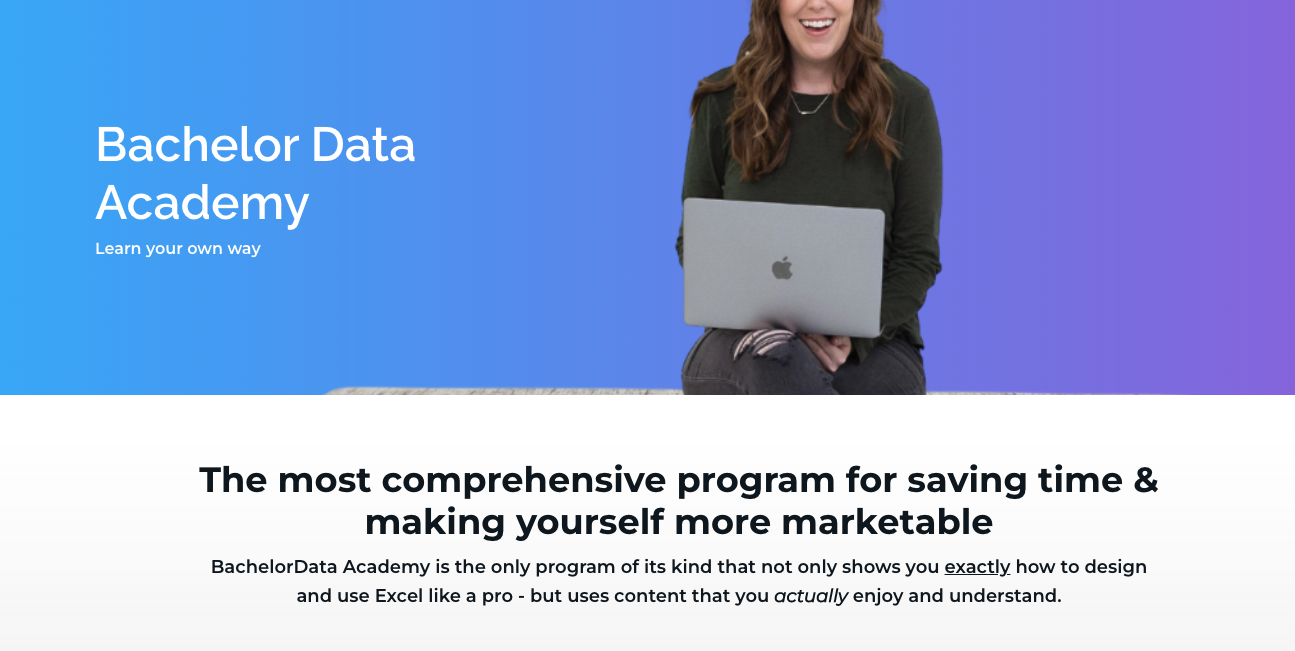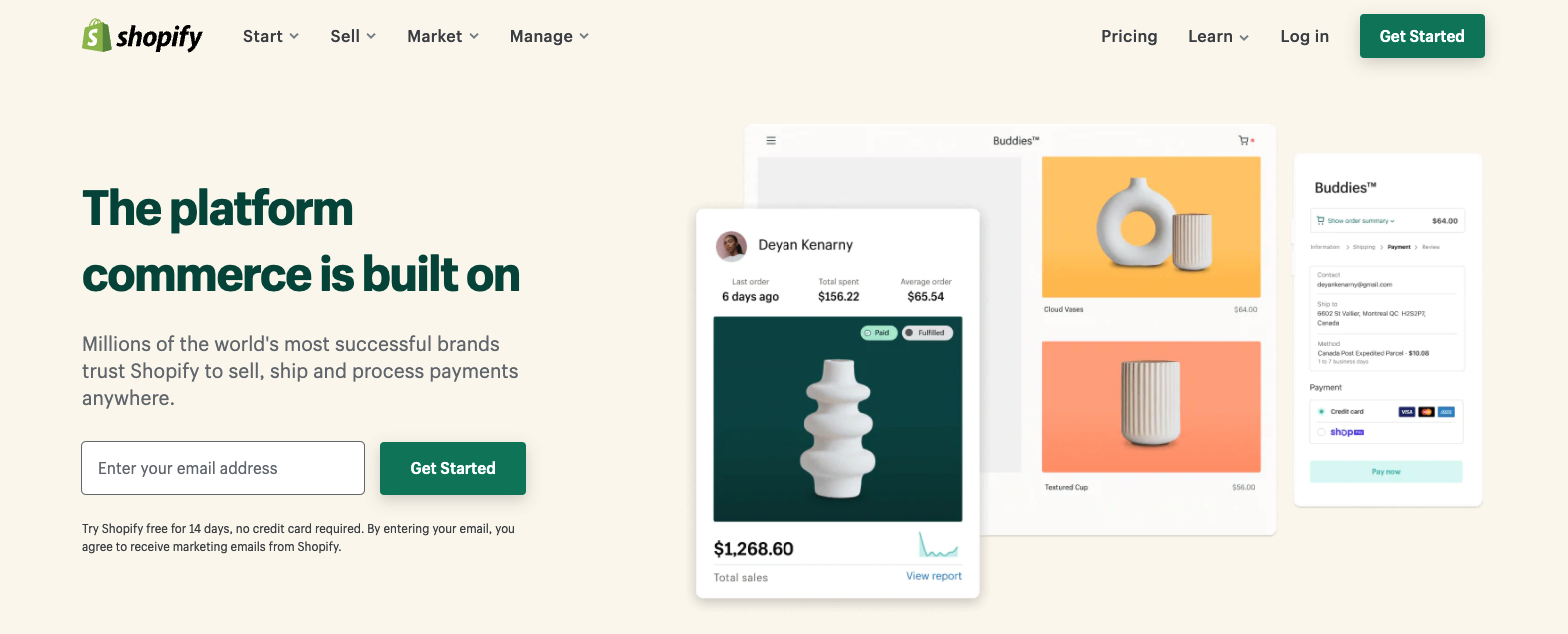It’s no secret that the economy has changed since the beginning of the pandemic. Closures of brick and mortar businesses, shifts to online work and education, and labour shortages have all contributed to a different world than pre-COVID. But with change comes new opportunities – especially for entrepreneurs.
- What is the knowledge economy?
- Where is the knowledge economy going?
- The knowledge economy in action
- How can you benefit from the knowledge economy?
What is the knowledge economy?
The knowledge economy is an economic system where the main commodity is knowledge, not physical goods.
This means that instead of only placing value on buying and selling physical products (like shoes or cars), value is also placed on expertise, innovation, discovery, and any other intellectual capital (like IT support, branding, research, or consulting).
The term “knowledge economy” has been around since the late 1950s, but started to become most prominent in the late 1980s to the early 2000s. This knowledge economy was primarily focused on research and technology, with an increased demand for science-based innovation.
One indicator of this emphasis on innovation was the growth of total patents granted by the United States Patent and Trademark Office (USPTO). In 1981 the USPTO granted 71,114 patents, compared to 187,053 in 2003. Most recently in 2021, 374,006 patents were granted, showing no sign of innovation slowing down into the present.
Today, the knowledge economy is a massive part of the overall global economy with millions of people employed in disciplines such as marketing, customer experience, engineering, design, and education – to name a few. Value is highly placed on intangible assets like brand recognition, software, and patented designs.
The World Bank Institute outlines four pillars that must be present for the knowledge economy to thrive.

1. Institutional structures that provide incentives for entrepreneurship and the use of knowledge
For example, the US government supports small business innovation through the Small Business Innovation Research program. This program supports entrepreneurship and research through monetary grants from $150,000 – $1,000,000. The goal of the program is to stimulate high-tech innovation and help the “United States gain entrepreneurial spirit as it meets its specific research and development needs.”
2. Availability of skilled labor and a good education system
This could mean good universities and school systems, but this definition is changing. There are increasingly online learning options to acquire the necessary skills to join the knowledge economy. For example, creators such as Miss Excel on Thinkific, make learning in-demand skills such as Microsoft Excel accessible from anywhere in the world.
3. An effective innovation system of firms, research centers, universities, consultants, and other organizations
This could be any non-governmental organization that contributes to innovation, like research labs or think tanks. For example, the European Organization for Nuclear Research (CERN) houses 12,200 scientists from 70 countries and is the largest physics laboratory in the world. CERN contributes to innovation globally and created the world’s most powerful particle accelerator in 2018.
4. Access to information and communication technology (ICT) infrastructures
One example that comes to mind here is Google. With Google, people have the means to answer any question at the tip of their fingers through phones, tablets, and computers. They also have the ability to communicate through chat and email. The internet and search engines make access to information infrastructures accessible worldwide.
Where is the knowledge economy going?
Currently, more than 70% of patenting and production of scientific and technical papers happens in developed countries. There is clearly a large disparity between developing and developed countries when it comes to the knowledge economy.
But that doesn’t mean developing countries can’t profit from the knowledge economy. With the internet and a multitude of ways to learn and make money online, there is greater opportunity than ever. Entrepreneurs in developing countries can tap into global knowledge to bolster their own success.
That isn’t to say industrial and agricultural economies are going anywhere. We still need cars, shoes, furniture, appliances, and more. And of course, we still need food. But tapping into the knowledge economy is a fantastic way for entrepreneurs to make money – and sometimes help others in the process.
As information becomes more widely available the knowledge economy will keep growing, making this an optimal time to jump in and benefit.
The knowledge economy in action
So we’ve defined what the knowledge economy is, and where it might be headed. But who are knowledge entrepreneurs, and what are they doing?
You’ve probably heard of the biggest companies that operate in the knowledge economy. We previously mentioned Google, but Amazon and Apple are also great examples. All of these companies leverage the knowledge economy to deliver exceptional innovation: from revolutionizing online shopping to virtual assistants Siri, Alexa, and Google Home, to ebooks and digital reading.
But, it’s pretty hard to relate to these massive companies where hundreds of thousands of people are working towards the corporation’s success and innovation. There are many smaller entrepreneurs and companies benefitting from the knowledge economy, and building their own success. Here are a few examples:
Course creators
Tonya Rapley, founder of myfabfinance
Tonya created myfabfinance to teach financial concepts to millennials. She now has an award-winning blog and highly successful financial course masterclass – all stemming from her desire to share knowledge with others. She credits her success with establishing herself as the go-to subject matter expert for finance. Because she demonstrates clear understanding and expertise, her audience and customers place value on that expertise and knowledge as well.
Suzana Somers, founder of BachelorData Academy
Suzana taught herself how to analyze data using the TV show The Bachelor. This fun project led to her creating an Instagram account to share her data analysis. Her account became so popular Suzana decided to launch a data analysis course on Thinkific to share her knowledge. Her course has been featured in publications like Vanity Fair, and she’s helped her students learn data visualization all without any formal training in the area. Because she positioned her knowledge in such a unique way students immediately saw the value and were willing to pay for it.
These two entrepreneurs are far from the exception – millions of companies and individuals are finding success within the knowledge economy. Look at fitness studios and yoga instructors switching to teaching online, or photographers and creatives sharing their knowledge through courses and videos.
Part of the growth of knowledge entrepreneurship is the fact that it’s open to anyone; a knowledge entrepreneur doesn’t have to be an expert, a celebrity or have the backing of an established business. They simply have a skill, knowledge, or passion that they want to share as part of creating or scaling a business.
Technology companies, agencies, and consultants
While we know creating online courses is an excellent way to cash in, there are other options too.
Take a look at e-commerce company Shopify. They’ve created a one-stop-shop for selling online, much in the same way Thinkific has created a one-stop-shop for teaching online. Much of Shopify’s success comes from their ability to anticipate customer needs and release features that meet them.
For example, Shopify’s customers needed help marketing their online shops, so Shopify released email marketing and Facebook Ad integrations to make that easier. The company has completely changed e-commerce. Their innovation and technology has made Shopify a market leader, showing the knowledge economy in action.
Agencies that provide consulting, design, or marketing services are also participating in the knowledge economy by selling their expertise to businesses. This could mean anything from helping businesses refine their organizational processes, to designing logos, to creating whole marketing plans.
Another clear example are tech startups that create apps or software. There is value placed on the coding and infrastructure that exists to create the software or application, as well as the brand and idea. These are all products of expertise and innovation – part of the knowledge economy.
These examples are in no way the only options for participating in the knowledge economy. The possibilities are nearly endless when it comes to ways to capitalize.
How you can benefit from the knowledge economy
The knowledge economy benefits people worldwide. More value placed on knowledge = incentive to invent, create, and share knowledge. But how can you personally benefit from the knowledge economy?
Well, it depends on what you want to do.
Read more: Find Your Niche in 5 Simple Steps
A great first step is to assess what you’re interested in and what you’re already knowledgeable about. Good at writing? Sell your skills through a course, or by freelancing on Fiverr or Upwork. Good at cooking? Write an online cookbook, or create videos on how to cook. Maybe you know how to create software and want to teach others how to code, so you start a bootcamp, or you sell a patent to your latest planning software.
Or maybe you’ve successfully run a marathon. There’s a market out there of people looking for tips and tricks on how to start running marathons. Perhaps you start a blog catering to them and monetize it, or maybe you start a running online community where people can ask you questions and help each other.
You get the point. Once you assess what your skill and knowledge set is, you just have to monetize it. A proven first step to do that is creating an online course.
Creating an online course with related products such as ebooks, live lessons, and memberships is a great way to break into the knowledge economy. If you know how to do something successfully, there’s an audience that’s willing to pay for the value your knowledge will bring them.








